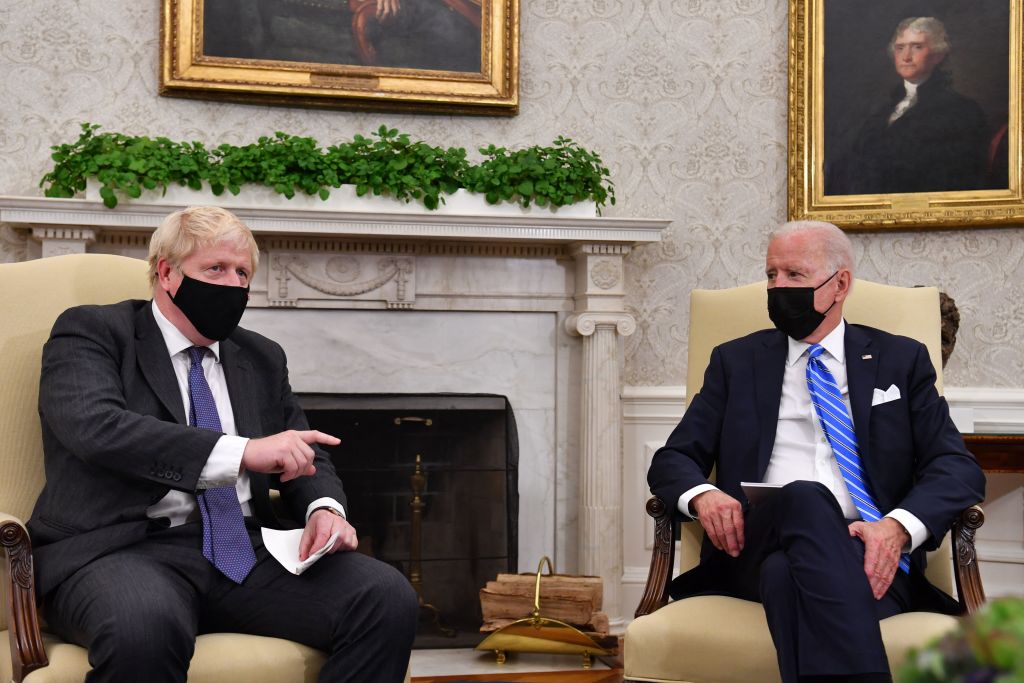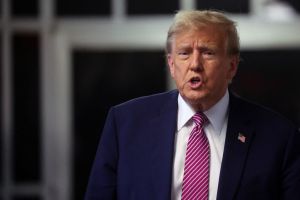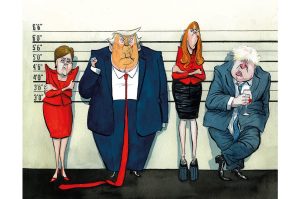For European Union enthusiasts, the ‘trade deal with America’ has joined ‘£350 million pledge on a bus’ as one of the great Brexit lies. A certain amount of gloating has greeted the news that Joe Biden on Tuesday afternoon ‘downplayed’ the possibility of a US-UK Free Trade Agreement. It’s a ‘snub’, Brexiteer hopes are dashed, and so on.
But did Biden actually ‘downplay’ anything? Not really, since nobody has been seriously playing up the possibility of late. Many journalists are today talking as if the British prime minister had been hoping to announce with Biden the trade deal Donald Trump promised Britain in 2017. But Boris has been the one minimizing the UK government’s hopes. He admitted this week the Biden administration had ‘bigger fish to fry’.
In fact, in as much as Biden said anything meaningful at all on Tuesday, he sounded more well-disposed towards Brexit Britain than he has before.
‘We’d have to work that through,’ he said, which was hardly a snub. He reiterated, albeit in his vague way and muffled through his ridiculously thick mask, his concern about Northern Ireland and the integrity of the peace process. But that has been his line ever since he won the election in November. No news there.
It’s true that Vote Leave, back in 2016, insisted that ‘the EU has failed to get a trade deal with any of these countries (the US, Japan, Asean, India and Mercosur). When we Vote Leave we will be able to do trade deals with all of these countries much more quickly.’
But Vote Leave campaigners were generally eager not to stress the likelihood of an FTA with the US. After all, for most of that year, Hillary Clinton looked the most likely candidate to win the presidential election, and everybody knew she regarded Brexit as something awful. It was only after Donald Trump, a Brexit enthusiast, shocked the world by winning the White House that Leavers sensed an opportunity. Trump, of course, flattered the British repeatedly by promising Britain a ‘beautiful, beautiful’ arrangement.
But Theresa’s May administration, allergic as it was to the dreaded Donald, missed whatever early opportunities there might have been to exploit any shared goodwill. The boring truth is that for some time now the post-Brexit US-UK trade deal has been a diplomatic dead duck. Talks never really got very far.
Ambitious Brexiteers within the government are eager to talk up the possibility of Britain joining the USMCA, the new Nafta trade agreement between the US, Canada and Mexico. Or perhaps the UK might ride in on America’s coattails after the US reenters the old Trans Pacific Partnership (TPP), now refashioned as the Comprehensive and Progressive Agreement for Trans-Pacific Partnership (CPTPP).
Joining one of these two major trading blocs would mark a great victory for Global Britain, though it’s fair to say the Biden administration has shown no visible enthusiasm for either idea. But it’s disingenuous of pro-EU journalists to make out yesterday was some great diss to Brexit Britain. The Biden administration just isn’t that interested in brokering new trade deals. The British and European press are still fighting Brexit wars, but the world moves on.
This article was originally published on The Spectator’s UK website.


















